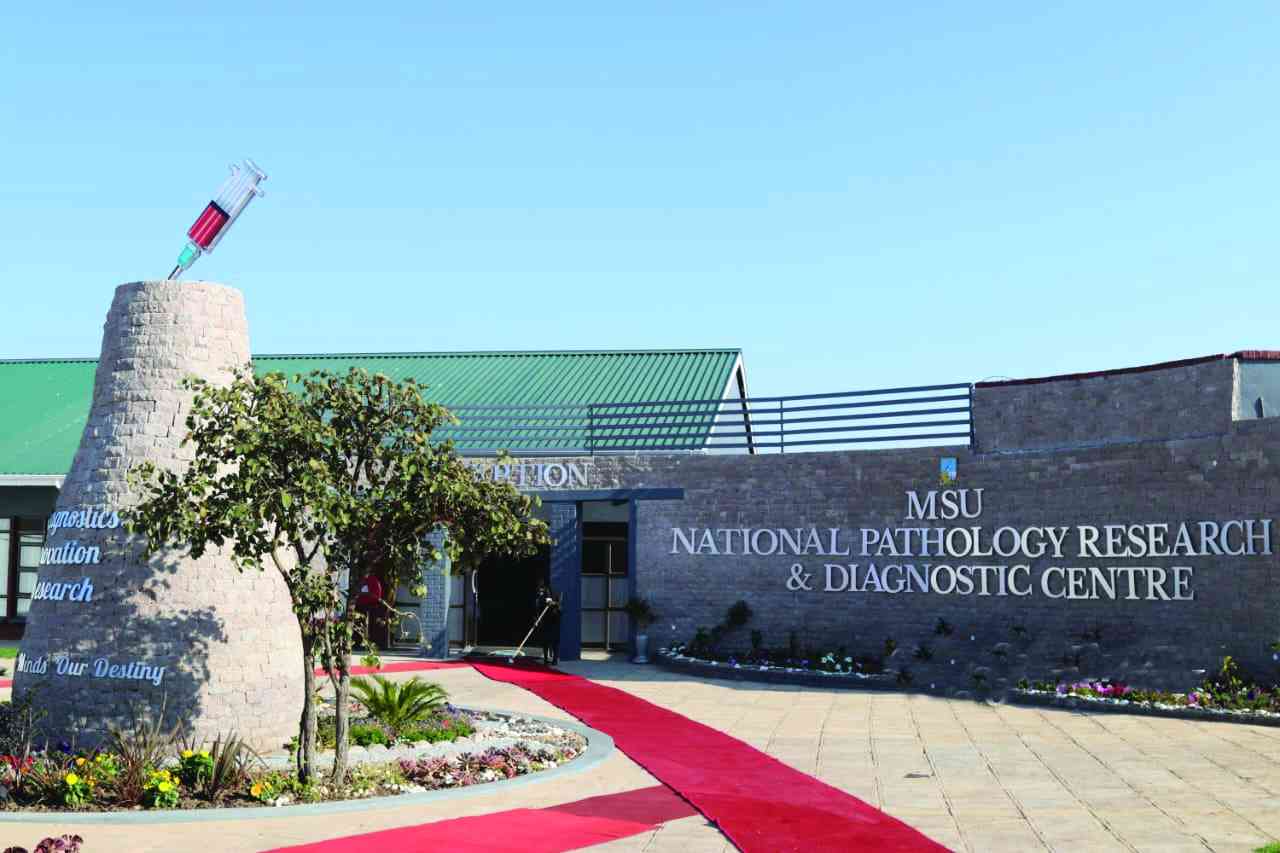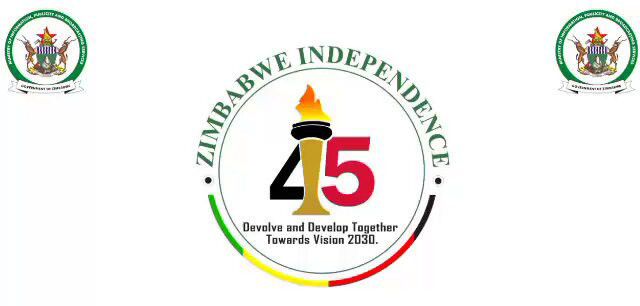
In the vibrant heart of Bulawayo, Zimbabwe's second largest city and one of my very favourite places on earth, lies Holiday Inn, a beacon of hospitality and warmth. During a recent work assignment, I had the privilege of meeting an extraordinary individual who embodies the essence of exceptional service: Leopold Hapazari.
His dedication, humility, and genuine joy in serving others set a remarkable standard for the service industry in Zimbabwe and beyond. Reflecting on Hapazari’s approach to hospitality reveals a broader truth: Exceptional service is not just about fulfilling duties but about creating connections, fostering growth, and inspiring change.
Through his work, Hapazari offers invaluable lessons on leadership, empathy, and the transformative potential of care in any profession. This truly made my stay at Holiday Inn Bulawayo quite extraordinary.
My role as a process facilitator was made even more effective. After all, our environment is key to our performance!
When walking into Holiday Inn Bulawayo, guests are greeted not just by the physical comforts of the establishment but by the intangible warmth that Hapazari has helped to foster in his role as an employee at the establishment. His approach to hospitality is far more than a job — it is a vocation.
Hapazari’s presence exudes a quiet yet resolute commitment to making every guest’s experience memorable. I was grateful to the meticulous time-keeping and accountability as I shuttled to and from my place of work for that week. Hapazari’s ability to connect with people stems from his intrinsic belief in the power of human interaction.
Beyond offering the basics of a smile or a polite greeting, he invests time in understanding the needs of others. It is in the simple yet profound acts — recalling a guest’s name, accommodating a special request, or offering reassurance during a stressful moment — that his service ethic reveals its depth.
What makes Hapazari’s approach remarkable is not just what he does but how he does it — with humility and a sense of purpose. His grounded nature is a reminder that the most effective service is rooted in authenticity.
Hapazari’s work ethic extends beyond his individual contributions to fostering a team culture that thrives on excellence.
In an industry marked by its fast pace and often transient workforce, he demonstrates the importance of stability and mentorship. By sharing his insights with colleagues, Hapazari not only enhances their skills but also empowers them to take ownership of their roles.
Leadership in hospitality is as much about inspiration as it is about action. Hapazari epitomises this through his inclusive approach, encouraging team members to voice their ideas and take initiative. This participatory leadership style fosters innovation, enabling the team to collaboratively address challenges and improve the guest experience.
Moreover, Hapazari’s mentorship reflects his belief in the potential of others. In Zimbabwe, where the service industry is a key pillar of economic development, nurturing talent is essential.
His commitment to developing his colleagues ensures that the ripple effects of his influence extend far beyond his immediate environment.
Hapazari’s philosophy on hospitality is deeply rooted in the principle of care — care for guests, colleagues, and the institution he represents.
This mindset has broader implications for the service industry, particularly in regions like Zimbabwe where tourism and hospitality play pivotal roles in national development.
By treating every interaction as an opportunity to create a lasting impression, Hapazari demonstrates how service professionals can become ambassadors for their communities and countries. His ability to make each guest feel valued is a lesson in how empathy can transform routine interactions into meaningful experiences.
This ethos of care is not confined to guests alone; it extends to how Hapazari views the role of training and professional development.
He recognises that excellence is not an endpoint but a continuous journey. Through structured mentorship and informal guidance, he has helped to instil a culture of lifelong learning among his peers.
Hapazari’s work offers critical reflections on the broader potential of the service industry in Zimbabwe and beyond. His story illustrates how individual excellence can elevate an organisation and, by extension, influence perceptions of the industry as a whole.
Guests who encounter such service professionals such as Hapazari often leave with stories of their experiences, sharing these narratives within their personal and professional circles. These accounts contribute to building a reputation for Zimbabwean hospitality that is as memorable as the country’s natural beauty.
The ripple effect of great service extends further, inspiring peers and competitors to raise their own standards. In this way, individuals such as Hapazari help to cultivate an ecosystem of excellence that benefits the entire industry.
Reflecting on Hapazari’s journey also brings to light some of the broader challenges faced by Zimbabwe’s hospitality sector.
Economic fluctuations, resource constraints, and limited access to training opportunities can make it difficult for service professionals to consistently meet high standards.
Yet, Hapazari’s story is testament to the power of passion and resilience in overcoming these challenges. His example underscores the need for systemic support — investment in training programmes, policies that prioritise staff welfare, and initiatives that encourage innovation in service delivery.
Moreover, Hapazari’s proactive approach to personalising guest experiences highlights the untapped potential of tailoring services to diverse client needs. As the global tourism industry becomes increasingly competitive, this personalised touch can serve as a differentiator for Zimbabwean hospitality.
At the heart of this reflection lies a simple yet profound truth: Exceptional service begins with individuals who care deeply about their work and the people they serve. Hapazari reminds us that the essence of hospitality is not found in grand gestures but in everyday acts of kindness and attentiveness.
His journey challenges us to reconsider our own roles within our professions. What would our workplaces look like if we approached every task with Hapazari’s sense of purpose? How might our communities transform if we prioritised genuine human connection in our interactions? As Zimbabwe continues to position itself as a premier tourist destination, the role of professionals such as Hapazari will be pivotal.
Their commitment to excellence not only enhances guest experiences, but also lays the foundation for sustainable growth in the hospitality sector.
Leopold’s vision for a future marked by empathy, professionalism, and continuous improvement is one that resonates far beyond the walls of Holiday Inn. It is a vision that speaks to the potential of the service industry to be a catalyst for national pride and economic development.
In celebrating individuals such as Hapazari, we are reminded of the transformative power of dedication, humility, and care.
His example invites us to reflect on our own contributions, encouraging us to strive for excellence in whatever we do.
The service industry, often undervalued, holds immense potential to shape perceptions, foster connections, and drive progress.
Through the work of professionals such as Hapazari, we catch a glimpse of what is possible when service becomes more than a transactional — it becomes a calling. Hapazari’s story is a celebration not only of his achievements but the values he represents. By learning from his example, we can collectively aspire to create environments that are not just functional but profoundly humane.
In doing so, we honour the essence of true hospitality: The ability to touch lives and leave lasting impressions, one guest at a time.
More than that, it supports all of us to become better humans at every turn as we transcend the rather complex Zimbabwean context. Until then, we are blessed to be a blessing (#B2BAB). We were here, becoming better, making our mark, and leaving our footprint as we make the world a better place!
Chirenje writes in her capacity as a citizen of Zimbabwe. Follow her on social media for more Lifezone with Grace conversations on Twitter: @graceruvimbo; Facebook: Grace Ruvimbo Chirenje; Instagram: @graceruvimbo











